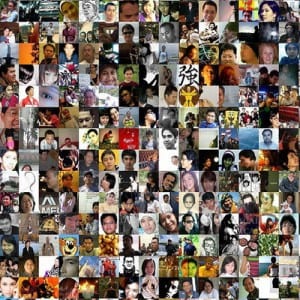What has Facebook done to us?
By Robert Eagle, on 30 January 2012
 “My mum just added me on Facebook,” I said in horror last month. Those are the words we all dread uttering.
“My mum just added me on Facebook,” I said in horror last month. Those are the words we all dread uttering.
These words were also the main focus of the Lunch Hour Lecture, ‘What has Facebook done to us?’ by Professor Daniel Miller (UCL Anthropology), on 19 January.
Miller has been studying the impact of Facebook on individuals, relationships and communities. Social anthropology has always been the study of social networks – how people relate to each other, traditionally in the context of kinship. Now, Miller and others in the field of digital anthropology are examining how Facebook can both help forge closer relationship for those separated by distance and, conversely, create tensions within close-knit communities.
There is a Euro-American fear that the internet is fostering greater individualism and disjuncture in society. Miller argues that Facebook: 1) bucks this trend, as by its very nature it connects people, and 2) is used differently by each community. There are, for example, uniquely British, Filipino or Caribbean ways of using Facebook, which shape our relationship to others.
 Close
Close

